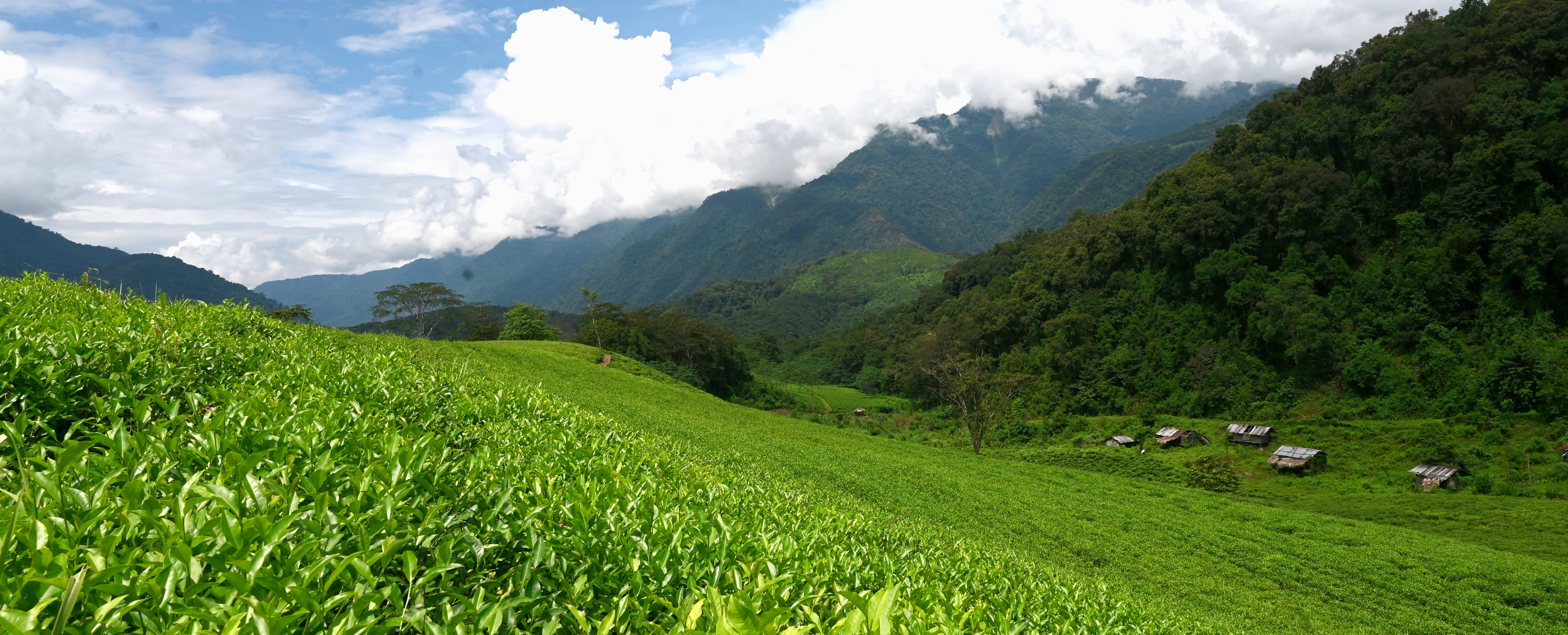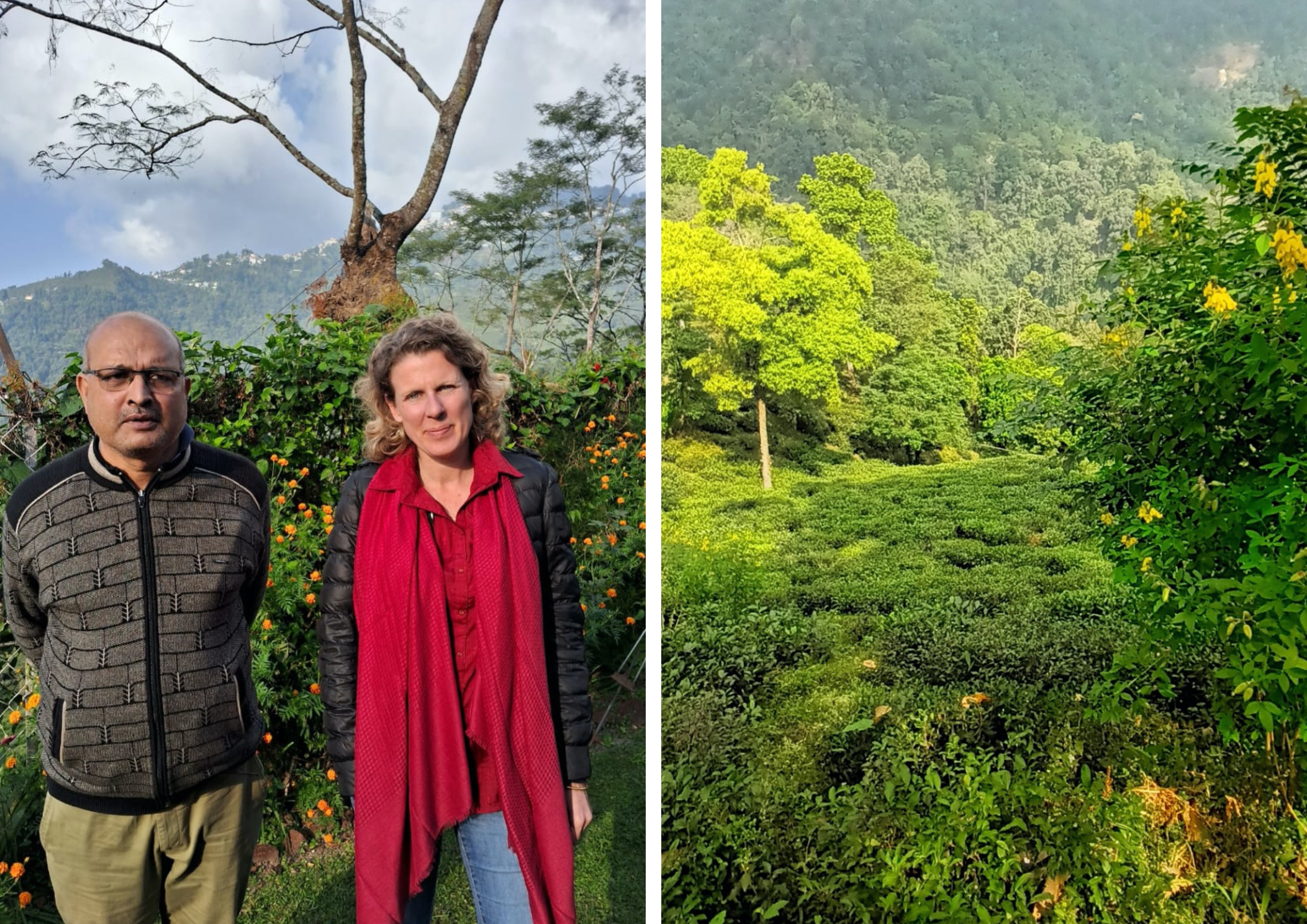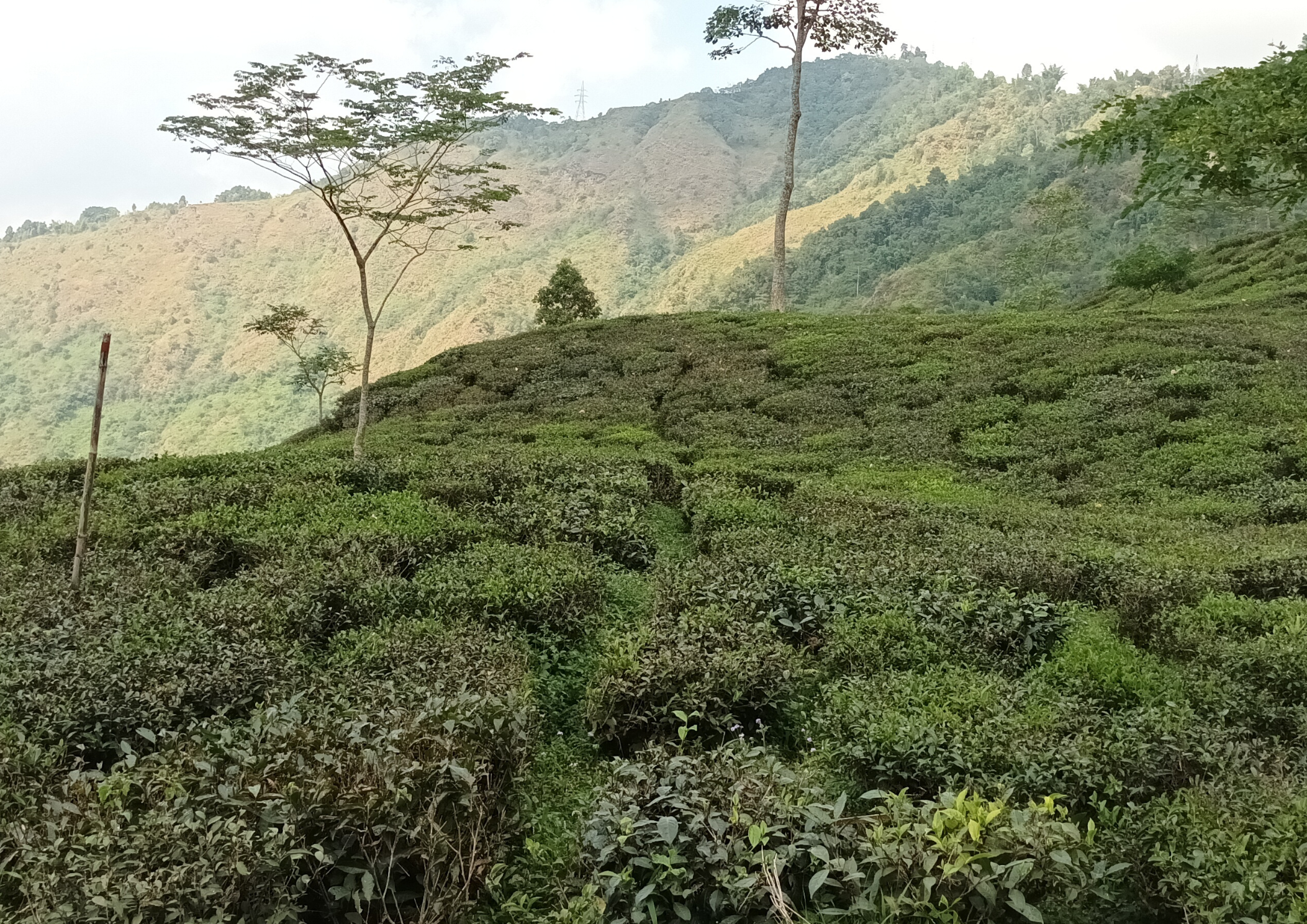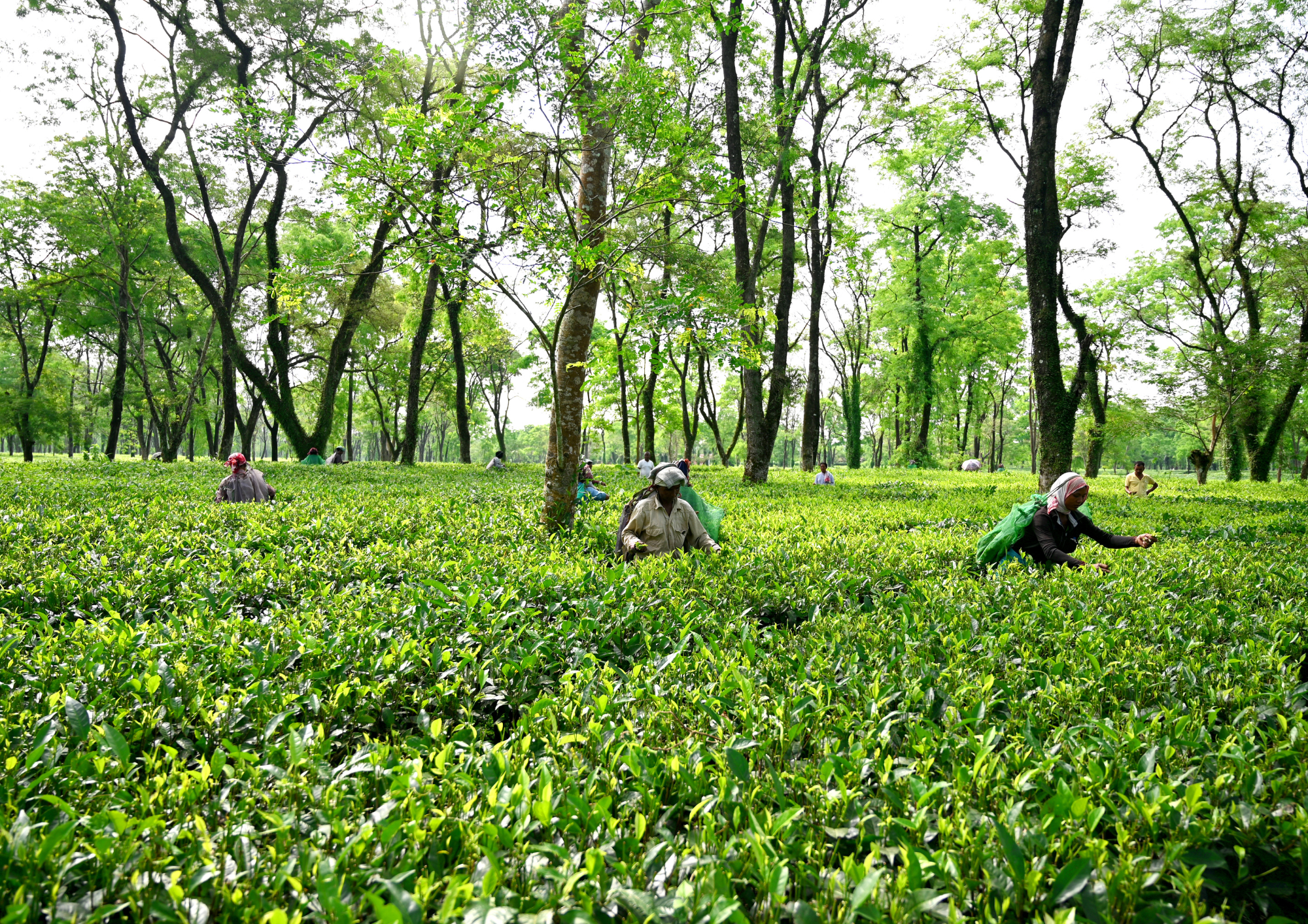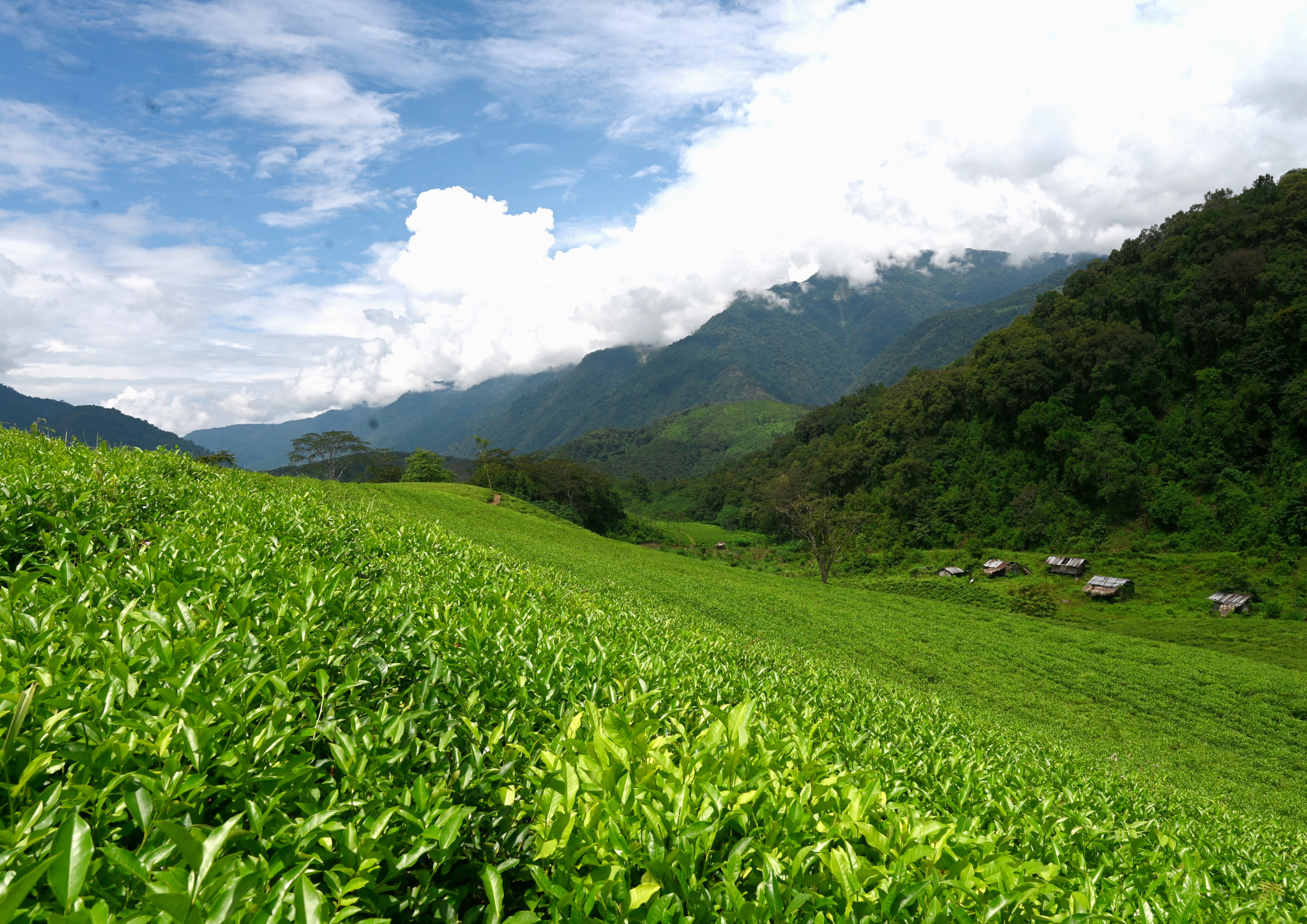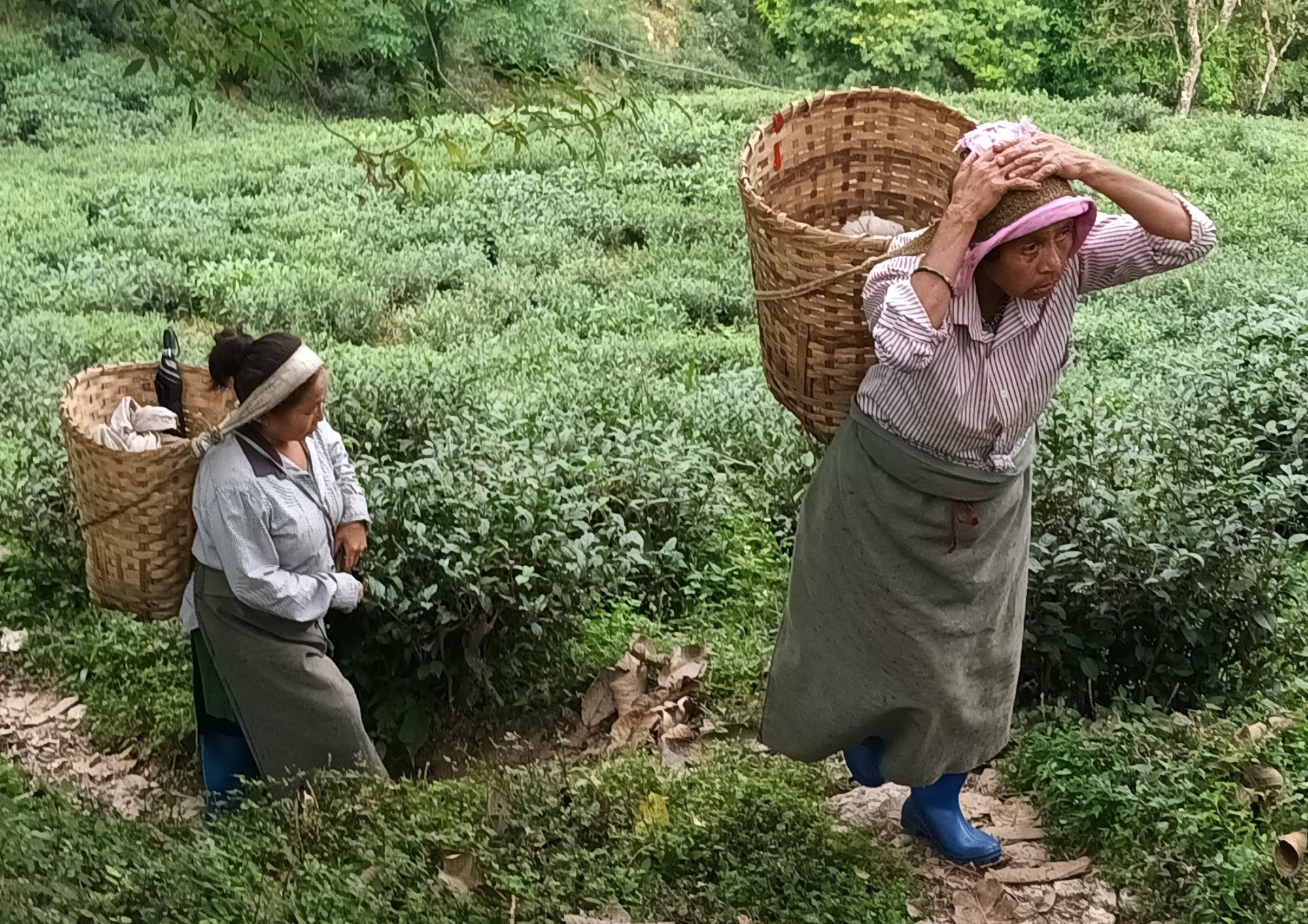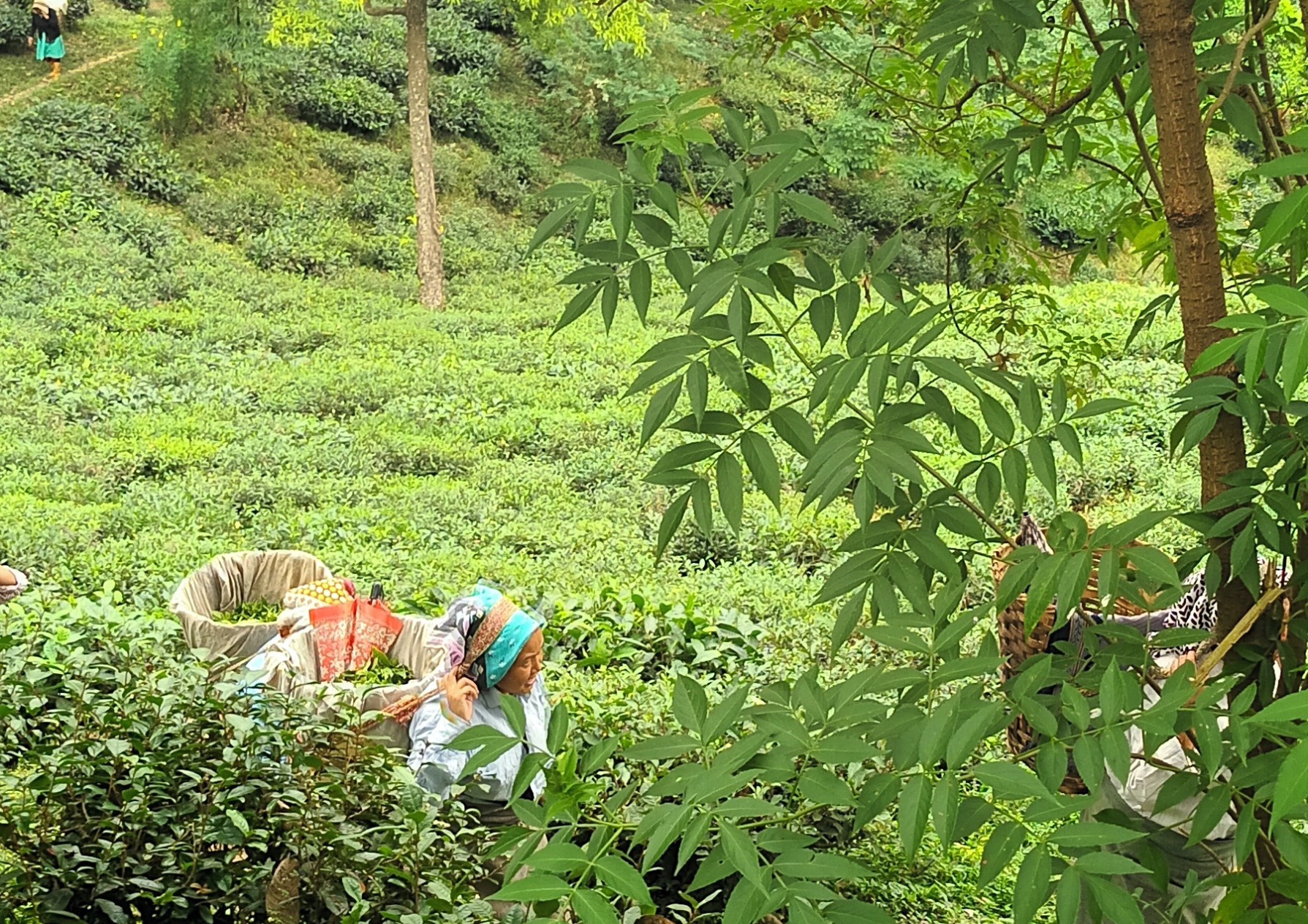The excellence of Assam Tea with Caroline Dutta Baruah
We invite you to discover the lush valleys of the Assam region, the cradle of India's tea culture. Meet Caroline Dutta Baruah, co-founder of the Oriental Gardens tea brand and, above all, a friend of our founder, Usha. Of Franco-Indian origin, Caroline shares her fascinating story, blending Indian and French traditions. She tells us about her journey, from her discovery of the Assam region with her husband, with whom she took over the family tea business. She also reveals the unique characteristics of Assam tea, its benefits, and the fascinating journey of a single tea leaf, from its blossoming in the fields to its delicate infusion in our cups.
©Caroline Dutta Baruah
Caroline, can you tell us about your background and how you met Usha?
I first studied business in Le Havre, then as part of an Erasmus program, I was lucky enough to study for two years in the UK. Shortly after graduating, I landed a job in finance in London. After a few years in London, my husband and I decided to take over the reins of the family publishing house founded in 1942 in Guwahati, Assam. I met Usha in Paris when I was interested in the art of Assam weaving and natural dyes. It was our shared admiration for Assamese weavers and love of their beautiful work that formed the basis of our friendship.
©Caroline Dutta Baruah
What story inspired the creation of Oriental Garden?
My attachment to Assam goes back more than 20 years. When I first came here, I was immediately seduced by the gentle way of life in this part of India and the rich diversity of its flora and fauna. Assam is India's largest tea-growing region, with tea plantations stretching as far as the eye can see. These landscapes are an invitation to peace and quiet, far from the hustle and bustle of the cities. I discovered the world of tea when I arrived in India. After visiting several plantations and meeting wonderful people who were able to pass on their knowledge and love of their incredible work, I wanted to put this knowledge to good use and share with Europe a little of the sweetness of the Assamese terroir through the discovery and tasting of teas meticulously selected by our team.
©Caroline Dutta Baruah
Assam teas are world-renowned for their health benefits. Could you tell us more about their unique characteristics?
It's important to note that the "Assam" appellation, as classified by the Tea Board of India, covers teas from the seven states of northeast India. While teas in Assam are grown at an average altitude of 150 meters, we can find teas grown at higher altitudes, such as 1,500 meters in Arunachal Pradesh. Then there are medium-altitude teas like those from Meghalaya. Each tea has its own unique characteristics, depending on the environment, soil conditions and water, and is an invitation to travel. Assam tea, unlike teas from other regions, is the closest to coffee in terms of cup strength, but without the caffeine levels associated with the latter. In terms of health benefits, Assam tea is rich in antioxidants and polyphenols, which are known to improve blood circulation and combat age-related diseases.
It's also important to note that there are two main tea cultivars: Camellia sinensis-sinensis and Camellia sinensis-assamica. While the former is endemic to China, the latter is endemic to Assam. The cultivar of most teas from other low-lying regions such as Africa is the Assamica cultivar.
©Caroline Dutta Baruah
Could you tell us the story of a tea leaf, from its birth in the gardens of Assam to its infusion in our cups?
When we talk about a tea garden, the first image that comes to mind is that of the tea growers and the last is that of the brewed cup - it's really the end-to-end description of the history of tea. To tell it in full would be to write a book on the subject, but let's try to summarize it as briefly as possible.
There is no tea-picking in India from December to early March, as the tea bushes rest at this time and the gardens concentrate on pruning the bushes so that the new buds can grow freely and healthily. Around March, it's time for what's known as the first spring flush, i.e. the spring harvest. Second flush teas are produced from June to August, and autumn teas from around October. Assam tea is renowned for its summer flavors, when the teas are robust, malty and strong.
After careful plucking, the tea leaves are transported to the factories, where they are withered, crushed or rolled, fermented, roasted and packed. In addition to each stage of the manufacturing process, the weather conditions at the time of plucking and the type of bush on which the leaves are picked play a decisive role in the characteristics of a tea. Each batch produced is different from the next, and the final taste can only be determined once the batch has been fully prepared.
We buy our teas directly from the gardens, without any middlemen, which is why we're proud of the fact that our teas are 100% traceable. We know where they come from, and ship them directly from source to France. We make our selections in India, choosing the best teas according to our customers' requirements. For our part, we encourage people to develop a taste for pure teas, and to drink them as additive-free as possible to get the best health benefits.
©Caroline Dutta Baruah
As a tea producer in Normandy, could you tell us about your tea-tasting rituals and moments?
My tasting rituals vary according to the season. In the morning, I usually drink Assam tea. Its full-bodied, spicy fragrance helps me wake up and reminds me of this part of the world so dear to me. In the afternoon, for my children's afternoon tea, I often prepare a "Masala Chai", a sweet milk tea with spices such as cardamom, cinnamon and star anise. Throughout the day, I enjoy Sikkim white tea or Darjeeling. At the moment, I'm tasting the spring harvest of Darjeeling (also known as the champagne of black teas), and we're in the selection phase, so we'll be bringing them to you soon!
©Caroline Dutta Baruah

